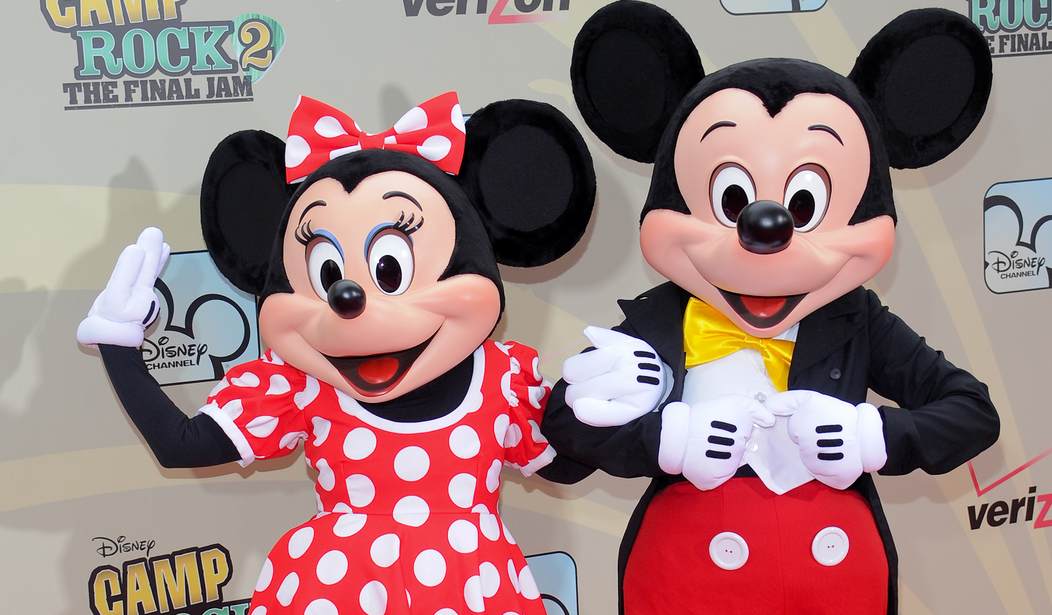In my prior life, I was an investment guy. That means, in part, that I know my way around an annual SEC (Securities and Exchange Commission) 10-K filing. Briefly, a 10-K provides a detailed picture of a company’s overall business, the risks it faces, and its operating and financial results for the fiscal year.
Therefore, in my opinion, investors in any given company's stock should have at least a basic understanding of the contents of said company's 10-K report. Spoiler: If you own Disney stock, this article's for you.
Second spoiler: Disney is more committed to continuing to pursue "woke" nonsense than with corporate — make that shareholder — profits.
Yup, while Disney lawyers did their damnest to bury the news, the company's latest required annual report is crystal clear with respect to warning investors that it's going to continue prioritizing its "social goals" over everything else.
Here's more:
There is in such things a statement of the various “Risk factors” the company may encounter, all in the obligatory legal way to avoid people later saying “You never warned us about this!!” and most of these are pretty obvious and boilerplate. But here’s some of the Disney language —and warning, it is dense but there’s a point in showing it all to you so we can dig in and find the, well, crazy bits.
Let's look at a few specifics (emphasis, mine).
We face risks relating to misalignment with public and consumer tastes and preferences for entertainment, travel and consumer products, which impact demand for our entertainment offerings and products and the profitability of any of our businesses. Our businesses create entertainment, travel and consumer products whose success depends substantially on consumer tastes and preferences that change in often unpredictable ways.
The success of our businesses depends on our ability to consistently create compelling content, which may be distributed, among other ways, through broadcast, cable, theaters, internet or mobile technology, and used in theme park attractions, hotels and other resort facilities and travel experiences and consumer products. Such distribution must meet the changing preferences of the broad consumer market and respond to competition from an expanding array of choices facilitated by technological developments in the delivery of content.
[...]
Generally, our revenues and profitability are adversely impacted when our entertainment offerings and products, as well as our methods to make our offerings and products available to consumers, do not achieve sufficient consumer acceptance.
Further, consumers’ perceptions of our position on matters of public interest, including our efforts to achieve certain of our environmental and social goals, often differ widely and present risks to our reputation and brands.
And there it is — clear as the bell I previously mentioned.
I imagine Disney saying: "You don't like our woke-ass movies or bastardization of previously beloved characters? Too bad — that's your problem. Here's our solution: Don't watch."
Throughout my years in the securities business, I never saw a 10-K — much less a blatant admission from a corporation — that warned investors that the company was going to intentionally pursue initiatives it knew full well were adverse to the corporation's bottom line.
How Bad Does Disney Know It Is and Not Give a Damn?
This bad:
The decline in domestic advertising revenue was due to a decrease of 14% from fewer impressions, reflecting lower average viewership, partially offset by an increase of 7% from higher rates.
[...]
The decrease in licensing revenue was due to lower sales of merchandise based on Star Wars, Frozen, Toy Story and Mickey and Friends.
Read that last line again. Star Wars, Toy Story, and Mickey Mouse are (were) among the greatest brands, not only in Disney's history but arguably in America's history as well. Yet now, in Disney's Twisted World of Woke, so-called "trans" characters and "queer" couples are the storied company's new priorities.
The Bottom Line
While most of the content of Disney's latest 10-K filing is vague — most 10-Ks are — it's more than clear that the company knows its "social" priorities are hurting its business, and it's just as clear that Disney doesn't care; it's not going to change a thing. And Mickey Mouse, Andy and Buzz from "Toy Story," and Elsa from "Frozen" be damned.
This is where one might usually say something like "Walt Disney is rolling over in his grave." Instead, I'll say this: "Disney investors should be running for the exits."
Related:
Will Disney Learn Anything After Its Woke Agenda Cost the Company Almost Half of Its Market Value?














Join the conversation as a VIP Member